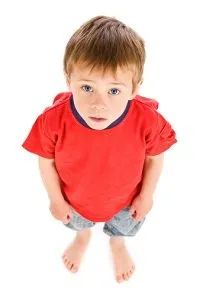Expelled from Preschool?
 “No child is more in need of a school-readiness-boosting preschool experience than a child who is being expelled or suspended from a preschool.”
“No child is more in need of a school-readiness-boosting preschool experience than a child who is being expelled or suspended from a preschool.”

Has anyone else noticed the latest disturbing trend of expelling preschool aged children from school? Preschool! That’s children three and under being “kicked out” out school for “challenging behavior.” The increasing reports are alarming. “According to the U.S. Department of Education, 6,743 children who were enrolled in district-provided pre-K in 2013-14 received one or more out-of-school suspensions. And that's just public pre-K. Still more children were likely suspended from the nation's many privately-run preschools and day cares.” (NPR, 2016.)
A new survey from the Maine Children’s Growth Council showed that, “More than 10 percent of Maine’s teachers and child care providers have expelled students as young as 3 years old from their programs because of challenging behaviors….” (BDN, 2016.)
This is unfortunate for a myriad of reasons. As a Montessorian, I understand that these “challenging” behaviors are actually the result of the child’s unfulfilled needs. These are inborn developmental needs (as opposed to “I need a chocolate chip cookie”.) The child cannot stop having such needs any more than he can stop needing air to breathe. He can only react--usually through misbehaving.
They are merely his reactions to an environment that has become inadequate...But we do not notice that. And since it is understood that the child must do what adults tell him, even though his environment no longer suits his needs, if he does not comply we say that he is ‘naughty’ and correct him. Most of the time we are unaware of the cause of his ‘naughtiness.’ Yet the child, by his conduct, proves what we have just said.
~Maria Montessori, From Childhood to Adolescence
Which is not to say that Montessori schools are exempt. There are some so-called Montessori schools run by people who lack the proper knowledge and training to understand the child’s needs and prepare the child’s environment accordingly. However, properly trained Montessori teachers have an in-depth understanding of child development and can therefore create an environment rich in appropriate activities, lessons, and tools.
Helping challenging children (or those exhibiting challenging behaviors) is...well...challenging. Teachers and parents need the right information, tools, and experience for those unavoidable times when the child requires a little extra guidance. As Yale University’s Walter S. Gilliam (Samuels, 2014) put it, “No child is more in need of a school-readiness-boosting preschool experience than a child who is being expelled or suspended from a preschool.”
Of course, there are several different theories as to why more and more preschoolers are being expelled such as bigger class sizes or trends toward less playtime or physical activity. As a parent, I tend to agree with Maria Montessori when she said, “What is generally known as discipline in traditional schools is not activity, but immobility and silence. It is not discipline, but something that festers inside a child, arousing his rebellious feelings.”
But when adults feel better equipped to work with children, expulsion rates go down. According to this 2016, Seattle Times article, “Preschoolers get expelled at three times the rate of students in elementary, middle and high schools. But when teachers get regular help from mental-health coaches, they expel at half the rate of those who don’t.”
So the moral of the story (in my humble opinion) is that this trend toward expelling our very youngest school children is the result of under-equipped adults. So where does the adult (whether teacher of parent) get the tools they need to deal with challenging behavior? Age of Montessori to the rescue! Check out AOM's...

Courses for Parents and Grandparents,
and other resources. Or call us 406 284-2160 today!




















